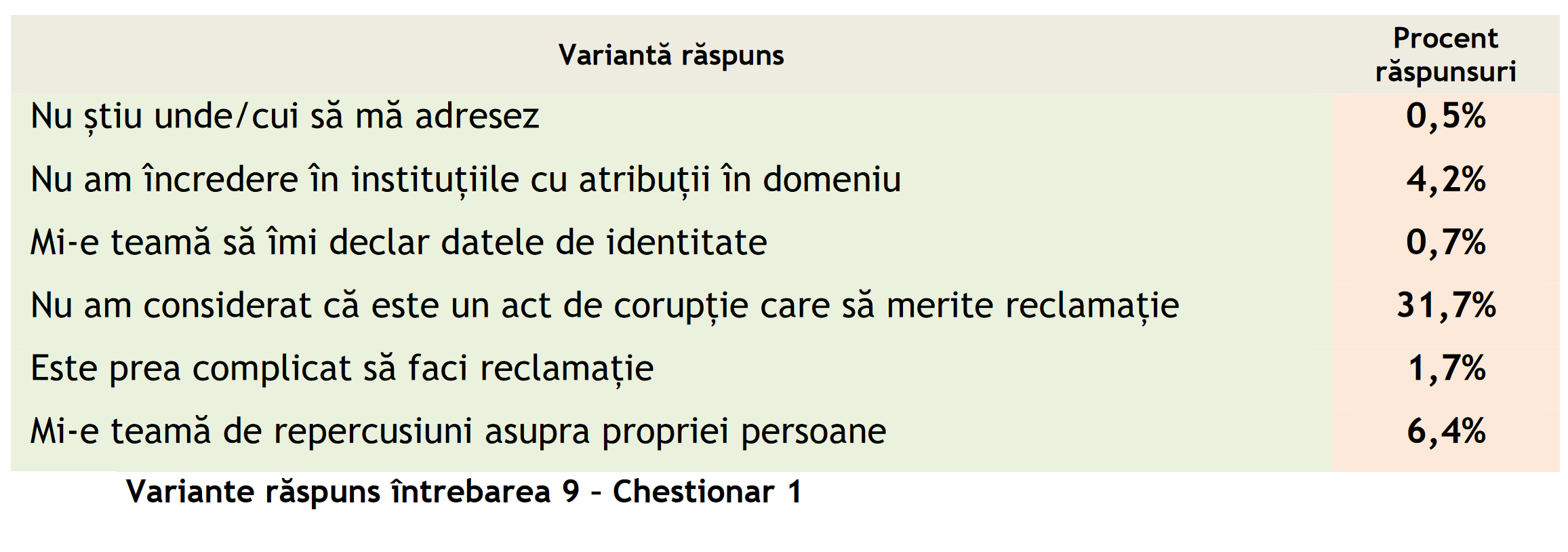
About 400 employees of the Ministry of Development, Public Works and Administration and subordinate agencies were interviewed, and 1,626 online questionnaires were sent to local elected officials, mayors and county council employees.
- “Although it was explicitly stated that the way to fill out the questionnaires is online, following the link sent by e-mail, there were situations (at the level of several UATs) when it was decided to print out the questionnaires, fill them out on paper. format and mail or scan and e-mail to DIBGPP.
- Although the representatives of these UAOs reported that only questionnaires filled out in the online version (!) are subject to processing and analysis. Examples of this type testify (still) to the existence of resistance to changes on the part of some officials and difficult adaptation to work with new technologies, which involves overcoming the stage at which the circulation of any documents was. performed exclusively in printed format and ultimately with signed holography,” the final report says.
When asked whether there have been cases of integrity, conflicts of interest, situations of incompatibility and/or cases of corruption or suspicions of a similar nature in the institutions where they work (the research period is 2016-present), almost half of the respondents answered that they were not. , 38% answered that they did not know anything about such a thing, and 13% said that they did.
Also ask, if they were faced with such a situation (corruption), who would they turn to, many answers were that they would not turn to the boss in any case: “The management does not support you in anything, tries to accuse you, you become suspicious. There is no one to turn to in our country. People who want to be honest are considered stupid or crazy”

In response to the question: “What do you think are the factors that may cause corruption at the level of the institution where you work?”, approximately 42% of respondents chose the option “Pressure to obtain overdue/priority answers”. for requests/opinions/approvals etc.’
Respondents were also asked what situations an employee may face while performing his duties. The answers were:
- 39.7%: offer/promise gifts, benefits or other benefits in order to perform work duties or say a “good word” to a colleague in order to favorably resolve the requests of the relevant persons;
- 32.2%: pressure to perform a task that is considered illegal;
- 16.7%: pressure to sign documents containing incomplete or inaccurate information within the framework of projects financed with public funds in order to give advantages to the beneficiary;
- 13.2%: receiving requests to give preference to certain people in recruitment/recruitment competitions;
- 11.8%: receiving appeals regarding giving preference to some business entities within the framework of public procurement procedures or during contract execution;
- 11.8%: pressure to gain access to information not intended for public disclosure.
“It is emphasized that 25% of respondents decided not to answer this question (!)”, the document also states.
See the full document here
Source: Hot News
Ashley Bailey is a talented author and journalist known for her writing on trending topics. Currently working at 247 news reel, she brings readers fresh perspectives on current issues. With her well-researched and thought-provoking articles, she captures the zeitgeist and stays ahead of the latest trends. Ashley’s writing is a must-read for anyone interested in staying up-to-date with the latest developments.